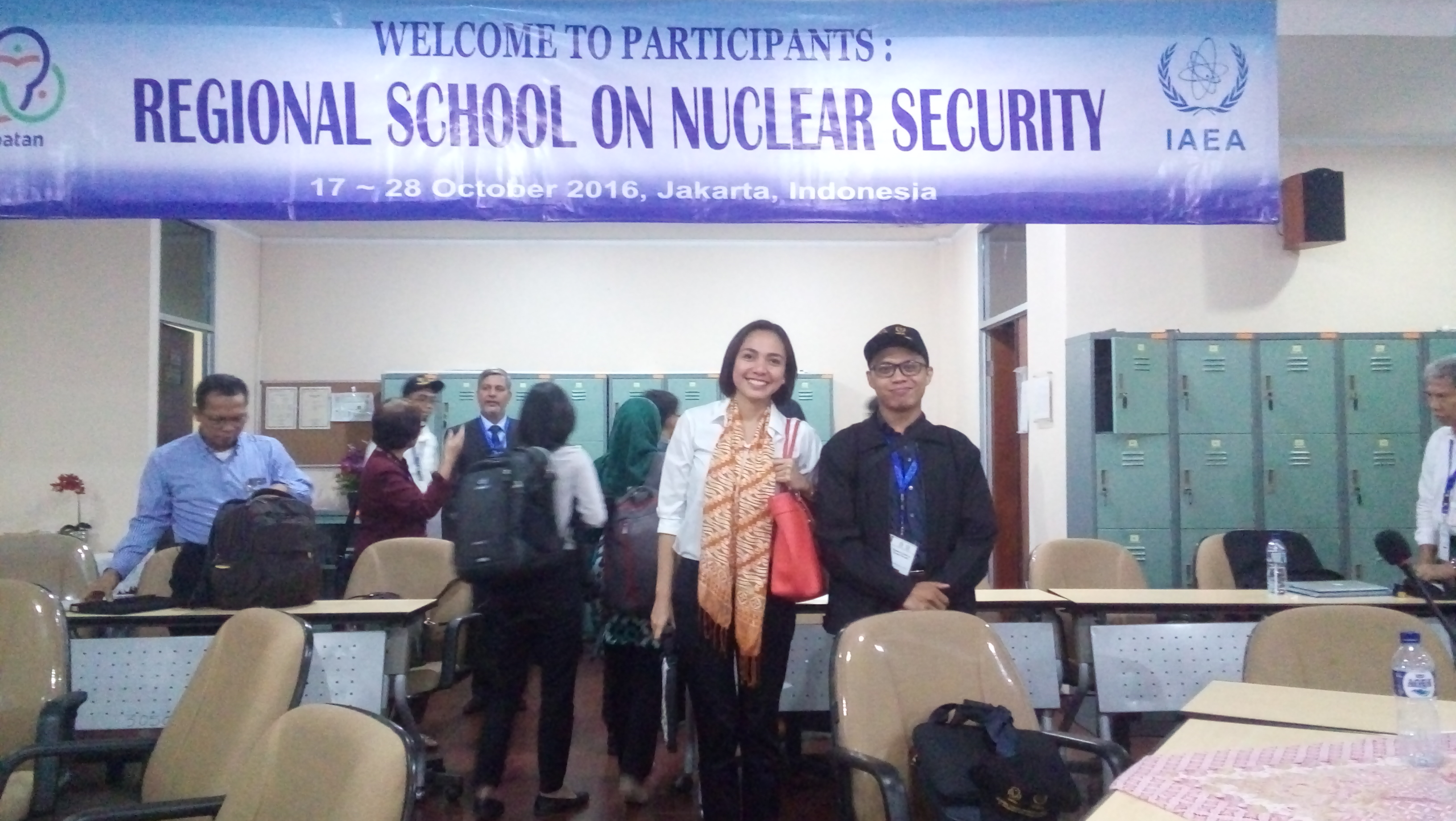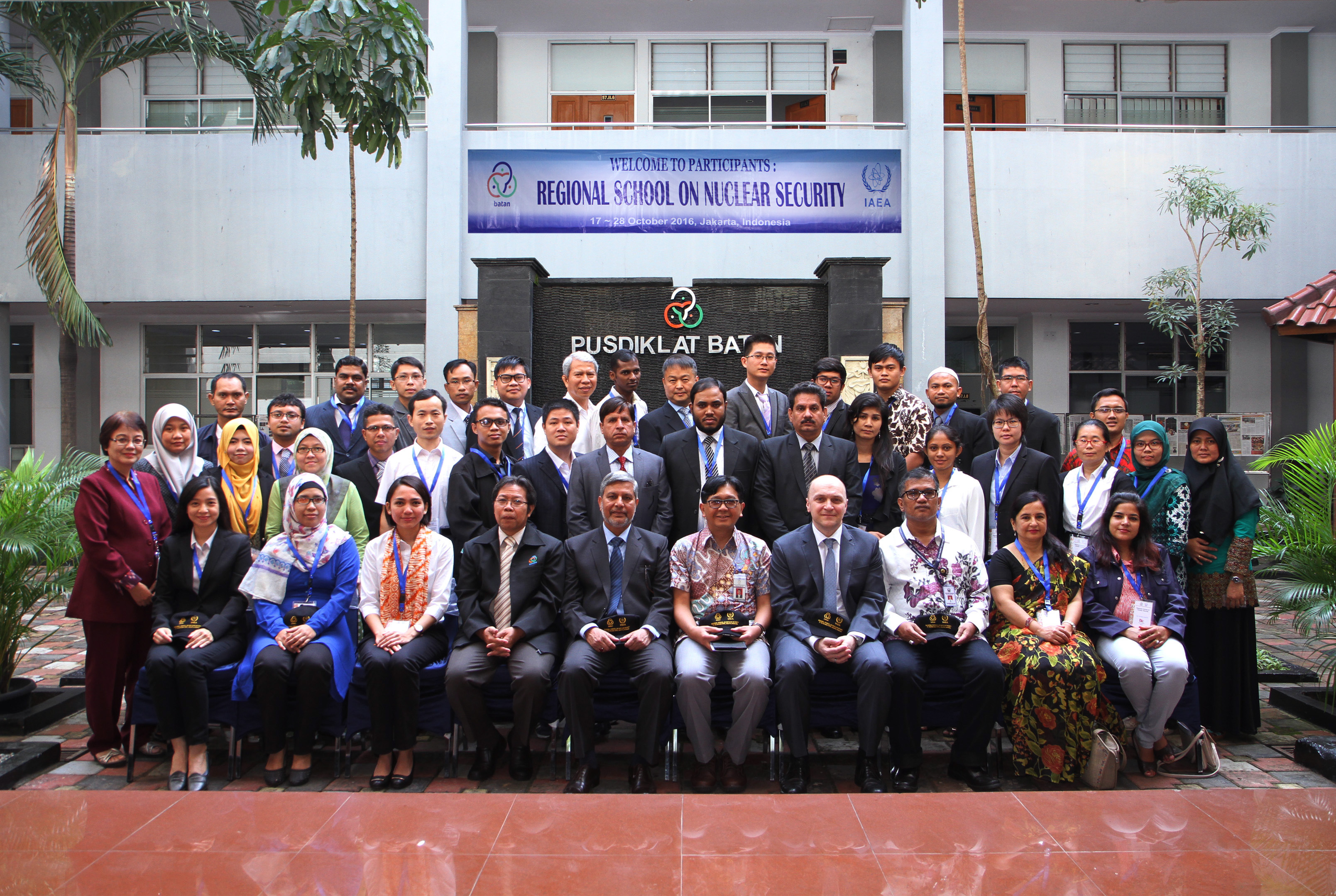BINUS International Relations’ Faculty Members Participated in Regional School on Nuclear Security

With the increasingly wide applications of nuclear energy all around the world, nuclear security is now more important than ever. With over 430 operating nuclear power plants, providing ~ 11 % total electricity worldwide; nearly 250 research reactors; over 300 fuel cycle facilities; more than 70 new nuclear power plants are being built in 15 countries; about 30 new countries embarking on nuclear power programs; and millions of radioactive sources used in medicine, agriculture, industry, research, etc.; establishing an effective and sustainable nuclear security infrastructure is crucial for the protection of individual, people, society and the environment.
To provide young professionals from nuclear facilities and other relevant institutions in the Asia and the Pacific region with a basic understanding of nuclear security, the International Atomic Energy Agency (IAEA) in cooperation with the National Nuclear Energy Agency of Indonesia (BATAN) and the Nuclear Energy Regulatory Agency of Indonesia (BAPETEN) had organized Regional School on Nuclear Security in Jakarta, Indonesia, on 17–28 October 2016. The School sessions were mostly held in BATAN’s Center for Education and Training on Jalan Lebak Bulus Raya No. 9, though there was a technical visit to BATAN’s reator in Serpong, South Tangerang, and BAPETEN’s office in Gambir, Central Jakarta on 25 October 2016.
The Regional School on Nuclear Security convened 36 participants from 13 IAEA member states from the Asia and the Pacific region. Among them were our Faculty Members, Tangguh Chairil and Mutti Anggitta, who engaged in the two-week program. The curriculum topics that were covered included:
- International legal framework supporting nuclear security
- Identification of, and remedies to, threats against nuclear security
- Instruments and methods for physical protection at associated facilities
- Illicit trafficking in nuclear and other radioactive material, including radiation detection instruments and detection strategies and techniques
- Transport security for nuclear and other radioactive material
- Nuclear and radiological forensics, and crime scene management
- Nuclear security culture, cybersecurity and security at major public events
- Measures for systematic nuclear security human resource development at the national level
- Practical exercises designed to incorporate this knowledge into Member States’ planning and procedures to protect against threats to nuclear security
All topics aimed to tackle some of the most prominent nuclear security issues with professionals from IAEA, BATAN, and BAPETEN. The program had brought young nuclear professionals together to foster discussion and debate on nuclear security, to increase international cooperation on nuclear security. At the end of the School, our Faculty Member Mutti Anggitta was announced as the best participant with the highest score on the evaluation. Congratulations to Mutti, for the very proud achievement, one of the best nuclear scholars who also raised the name of BINUS International Relations Department.

